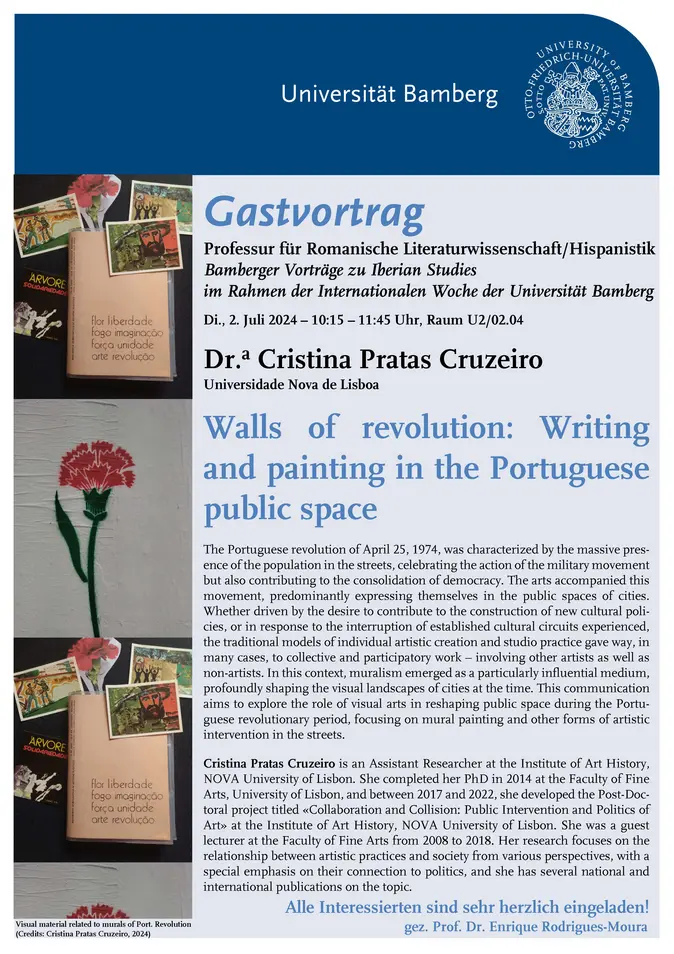Vortrag von Dr. Cristina Pratas Cruzeiro (Univerisdade Nova de Lisboa)
Bamberger Vortr?ge zu Iberian Studies
im Rahmen der Internationalen Woche der Universit?t Bamberg
Walls of revolution: Writing and painting in the Portuguese public space
The Portuguese revolution of April 25, 1974, was characterized by the massive pres-ence of the population in the streets, celebrating the action of the military movement but also contributing to the consolidation of democracy. The arts accompanied this movement, predominantly expressing themselves in the public spaces of cities. Whether driven by the desire to contribute to the construction of new cultural poli-cies, or in response to the interruption of established cultural circuits experienced, the traditional models of individual artistic creation and studio practice gave way, in many cases, to collective and participatory work – involving other artists as well as non-artists. In this context, muralism emerged as a particularly influential medium, profoundly shaping the visual landscapes of cities at the time. This communication aims to explore the role of visual arts in reshaping public space during the Portu-guese revolutionary period, focusing on mural painting and other forms of artistic intervention in the streets.
Cristina Pratas Cruzeiro is an Assistant Researcher at the Institute of Art History, NOVA University of Lisbon. She completed her PhD in 2014 at the Faculty of Fine Arts, University of Lisbon, and between 2017 and 2022, she developed the Post-Doctoral project titled ?Collaboration and Collision: Public Intervention and Politics of Art? at the Institute of Art History, NOVA University of Lisbon. She was a guest lecturer at the Faculty of Fine Arts from 2008 to 2018. Her research focuses on the relationship between artistic practices and society from various perspectives, with a special emphasis on their connection to politics, and she has several national and international publications on the topic.
Alle Interessierten sind sehr herzlich eingeladen!
gez. Prof. Dr. Enrique Rodrigues-Moura
